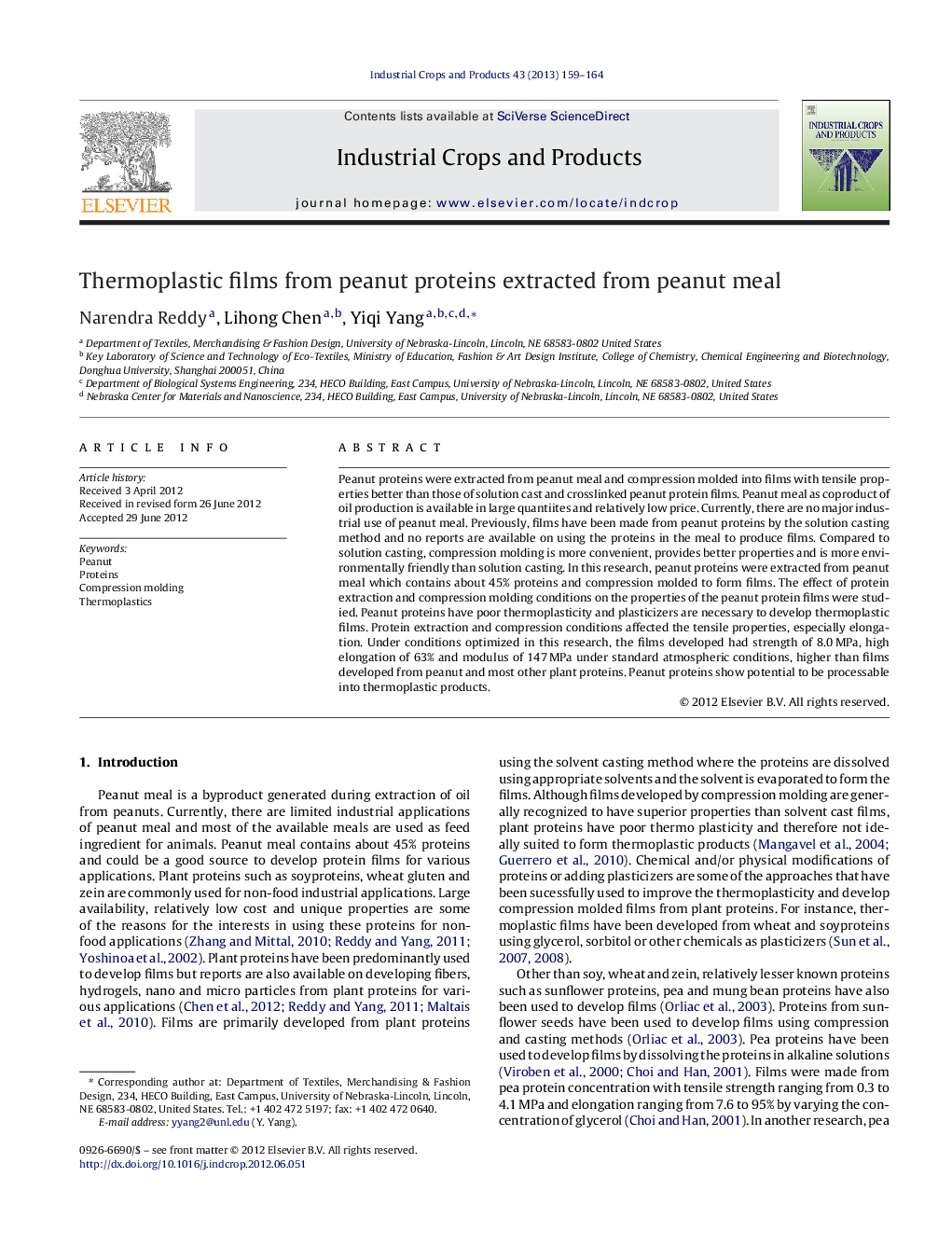| Article ID | Journal | Published Year | Pages | File Type |
|---|---|---|---|---|
| 4514111 | Industrial Crops and Products | 2013 | 6 Pages |
Peanut proteins were extracted from peanut meal and compression molded into films with tensile properties better than those of solution cast and crosslinked peanut protein films. Peanut meal as coproduct of oil production is available in large quantiites and relatively low price. Currently, there are no major industrial use of peanut meal. Previously, films have been made from peanut proteins by the solution casting method and no reports are available on using the proteins in the meal to produce films. Compared to solution casting, compression molding is more convenient, provides better properties and is more environmentally friendly than solution casting. In this research, peanut proteins were extracted from peanut meal which contains about 45% proteins and compression molded to form films. The effect of protein extraction and compression molding conditions on the properties of the peanut protein films were studied. Peanut proteins have poor thermoplasticity and plasticizers are necessary to develop thermoplastic films. Protein extraction and compression conditions affected the tensile properties, especially elongation. Under conditions optimized in this research, the films developed had strength of 8.0 MPa, high elongation of 63% and modulus of 147 MPa under standard atmospheric conditions, higher than films developed from peanut and most other plant proteins. Peanut proteins show potential to be processable into thermoplastic products.
► Peanut meal is low cost and renewable source for proteins. ► Proteins extracted from peanut meal were compression molded into films. ► Films developed have tensile properties better than solution cast films. ► Peanut proteins could be useful to develop various thermoplastic products.
